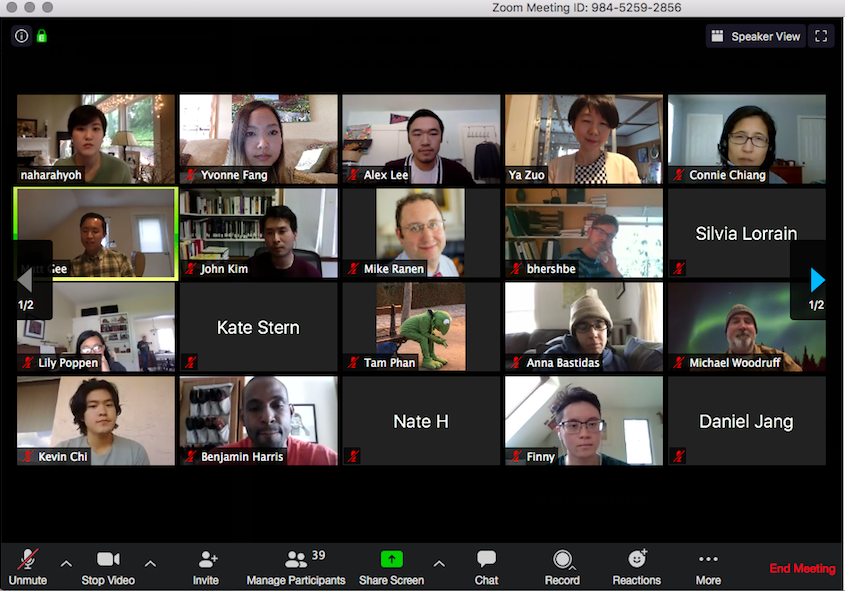Virtual panel discusses Asian identity and bias during pandemic
May 1, 2020
 Courtesy of Yvonne Fang
Courtesy of Yvonne FangThe Asian Students Alliance (ASA) hosted a virtual panel on Tuesday to discuss the increased racial bias faced by the Asian and Asian American community due to the coronavirus (COVID-19) pandemic. Students, faculty and staff shared personal experiences, discussed the historical context and posed questions of identity.
The event, “Asian Identities in Times of Crisis,” was held on Zoom and was attended by almost 40 participants. Prior to the College’s transition to remote learning, ASA had planned numerous on-campus events in April for Asian Heritage Month. While most of the events have since been cancelled, the importance and timeliness of the topic prompted ASA co-presidents Yvonne Fang ’20 and Alexander Lee ’20 to plan the panel.
“Connecting virtually and discussing important issues on one hand validates people, shows they’re not alone and provides support,” said Fang in a phone interview with the Orient. “It’s also an in-depth and hopefully thought-provoking discussion and, in that way, it’s a good way to build solidarity.”
Panelists emphasized the diversity of the Asian and Asian American community both within the United States and at Bowdoin. The difficult realities Asian Americans are facing at this moment were also made clear as participants shared personal stories, such as being targeted with racist comments while out grocery shopping.
Asian and Asian American students who attended the online panel said the discussion broadened their perspective on the effect the pandemic is having on others.
“Hearing their stories changed my mind for sure … I was not targeted and I’m really lucky,” said attendee Cheng Xing ’23 in a phone interview with the Orient. “It’s quite interesting and dramatic how even though we’re both Asian, these [experiences] can be so different.”
Associate Professor of History and Asian Studies Leah Zuo spoke on the differences she observed between her hometown of Wuhan, China and her residence in Brunswick, especially in late January and February. While Wuhan was on lockdown as the first hotspot of the coronavirus, Brunswick appeared untouched by the distant suffering.
“On the one side is Wuhan that is sinking … on the verge of collapse. People who cannot breathe … Health care professionals dealing with exhaustion and shortage of medical equipment,” Zuo said. “And the other side of the world is Brunswick … February [is] a characteristically tranquil time period. You know, students came back to campus and were happy with anticipation and with the smiling faces.”
Panelists also shared experiences of feeling their “American” identities challenged.
Professor of History and Environmental Studies Connie Chiang drew parallels to the internment of Japanese Americans in concentration camps during World War II. At the time, the Japanese American Citizens League advised compliance with the internment as a display of American loyalty—a sentiment panelists said was problematically echoed in politician Andrew Yang’s recent call for the Asian American community to “show American-ness.”
However, Chiang explained that Asian American belonging was not and should not be conditional on people proving their Americanness.
“Why should Asian Americans, at this moment, do whatever they can show that they are American? Why is that an appropriate response or appropriate advice to give, when Asian Americans … are Americans?” said Chiang in a video interview with the Orient. “It’s a question that Asian Americans have had to grapple with both historically and in this current moment.”
The discussion highlighted poignant aspects of Asian and Asian American existence in times of crisis, and members of ASA hope to continue the discourse as the pandemic unfolds.
“I really hope that the discussion will continue on beyond this panel, and in the larger Bowdoin community,” Fang said. “This is an ongoing crisis and a lot of people are impacted in different ways.”

Comments
Before submitting a comment, please review our comment policy. Some key points from the policy: